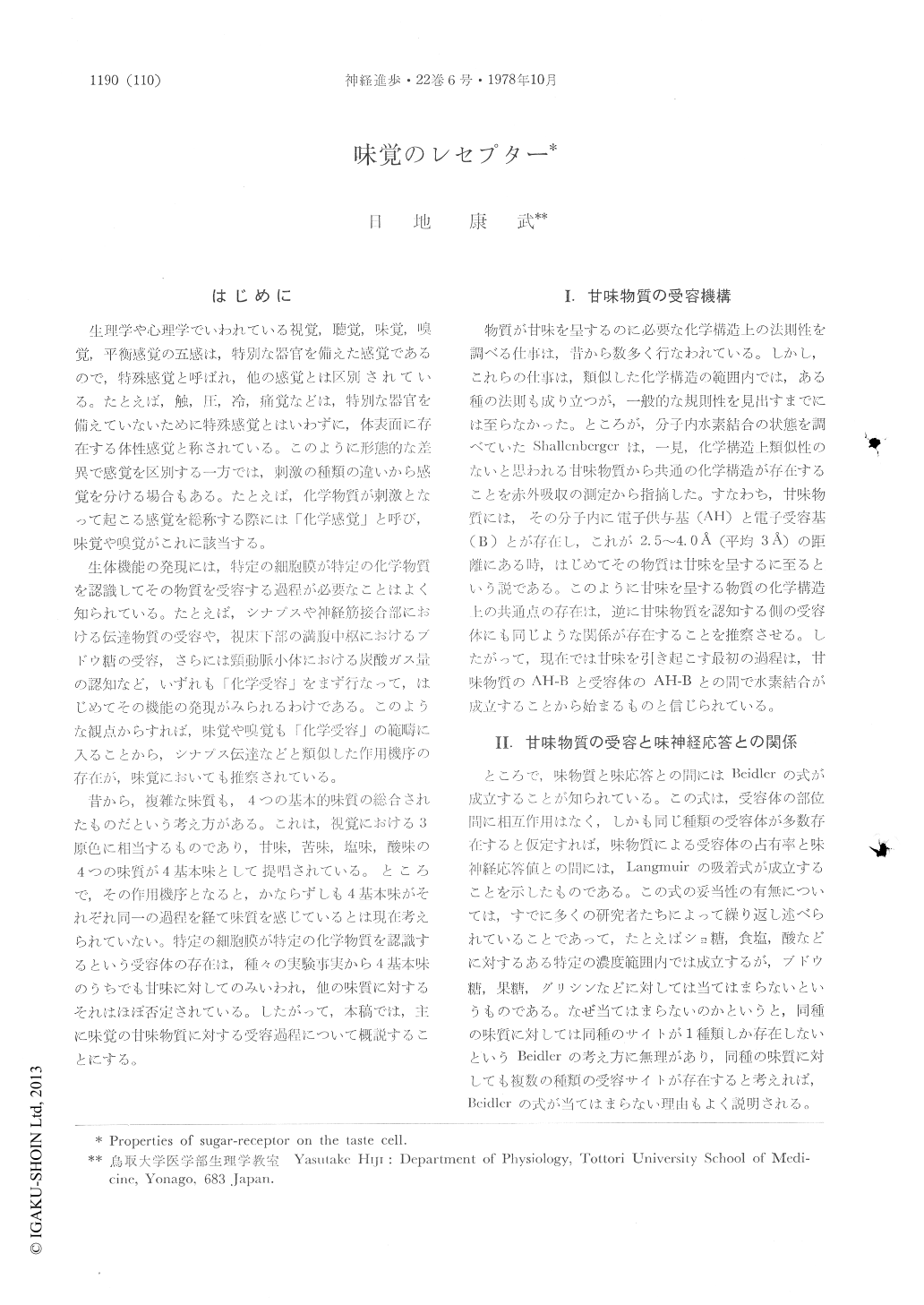Japanese
English
- 有料閲覧
- Abstract 文献概要
- 1ページ目 Look Inside
はじめに
生理学や心理学でいわれている視覚,聴覚,味覚,嗅覚,平衡感覚の五感は,特別な器官を備えた感覚であるので,特殊感覚と呼ばれ,他の感覚とは区別されている。たとえば,触,圧,冷,痛覚などは,特別な器官を備えていないために特殊感覚とはいわずに,体表面に存在する体性感覚と称されている。このように形態的な差異で感覚を区別する一方では,刺激の種類の違いから感覚を分ける場合もある。たとえば,化学物質が刺激となって起こる感覚を総称する際には「化学感覚」と呼び,味覚や嗅覚がこれに該当する。
生体機能の発現には,特定の細胞膜が特定の化学物質を認識してその物質を受容する過程が必要なことはよく知られている。たとえば,シナプスや神経筋接合部における伝達物質の受容や,視床下部の満腹中枢におけるブドウ糖の受容,さらには頸動脈小体における炭酸ガス量の認知など,いずれも「化学受容」をまず行なって,はじめてその機能の発現がみられるわけである。このような観点からすれば,味覚や嗅覚も「化学受容」の範疇に入ることから,シナプス伝達などと類似した作用機序の存在が,味覚においても推察されている。
Abstract
Properties of the sweet-sensitive protein extracted from the rat's tongue are found to be an acidic glycoprotein with the isoelectric point of pH 3. 8 and with molecular weight of about 100,000.
On the basis of electrophysiological evidence, it is suggested that two types of sugar reception are a common feature among different species. One type is the formation of a complex with two stimulus molecules for monosaccharides, the other one the formation of a complex with one stimulus molecule for disaccharides.

Copyright © 1978, Igaku-Shoin Ltd. All rights reserved.


